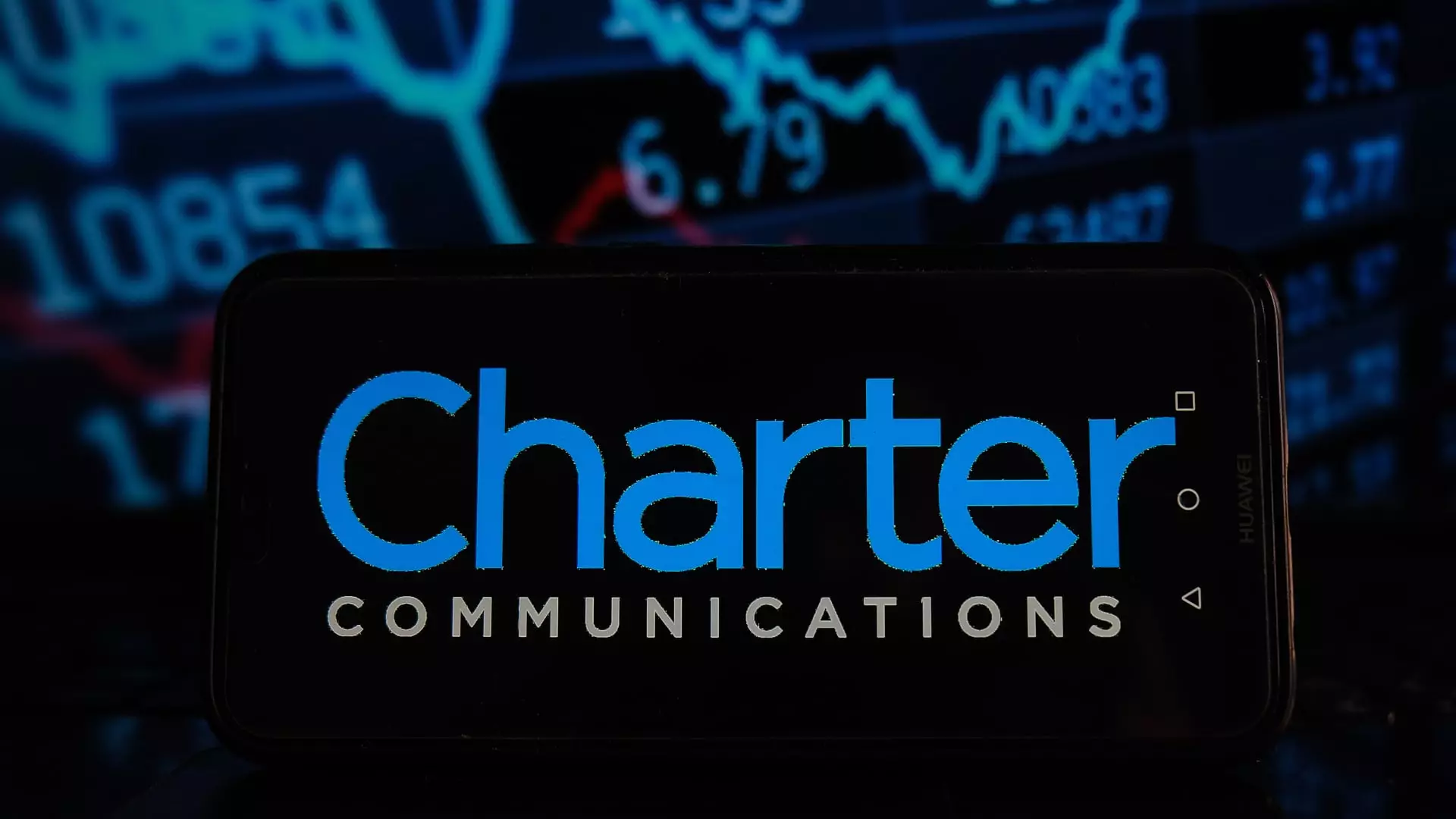The recent announcement of the merger between Charter Communications and Cox Communications has rocked the cable and broadband terrain in the United States. Valued at a staggering $34.5 billion, this deal isn’t merely a financial transaction; it signals a tectonic shift in how consumers will experience internet and cable services. While some may herald the merger as a move towards greater efficiency and competitiveness, I contend that this consolidation will likely exacerbate the already troubling trend of diminishing choices and increasing costs for consumers.
In the age of digitization, broadband is not just a luxury; it’s a lifeline for many. However, the growing dominance of a handful of cable giants poses an existential threat to the vibrant marketplace that many consumers once enjoyed. By merging, Charter and Cox effectively reinforce the monopolistic grip that plagues the industry, squeezing out smaller providers who offer personalized services and specialized packages. This move raises pertinent questions about consumer sovereignty: Are we reducing ourselves to mere pawns in an oligarchic game?
The Illusion of Competition
Proponents of the merger tout it under the guise of competitiveness, especially with the rise of alternative providers like 5G and fixed wireless services. Yet, the reality paints a starkly different picture. As Charter and Cox position themselves to dominate, the narrative of competition becomes increasingly hollow. While Charter lost 60,000 broadband customers and Cox entered the mobile sphere only recently, the troubling trend of consumer loss signifies a deep-rooted issue that a merger won’t magically resolve.
Isn’t it ironic that as the options for broadband services multiply, the actual choices consumers have are dwindling? The ironic twist is that this merger is being presented as a remedy to the malaise afflicting the broadband market, while it is, in fact, a step towards further unification of services under fewer umbrellas. The result? Limited choices that could compel consumers to settle for what is offered instead of what is best for their individual needs.
Pushing Down Prices or Increasing Profit Margins?
Charter’s aggressive pricing and bundling strategy might suggest that consumers stand to gain from this strategic alliance. But it’s essential to dissect who truly benefits here. When two industry giants consolidate, the supposed cost efficiencies—estimated to yield about $500 million in annualized savings—could just as easily be funneled towards fulfilling executive bonuses rather than translating into continued affordable rates for everyday users. The outcry for lower prices is often drowned out by the deepening pockets of shareholders, revealing a troubling disconnect between corporate objectives and consumer welfare.
The insistence of Charter on using the Spectrum brand, while allowing Cox to maintain its traditional name, seems to convey a duality that is not unlike a wolf in sheep’s clothing. Promised synergies do little to reassure consumers weary from price hikes and waning service quality. Ironically, as the landscape encourages communal investment in internet infrastructure, end-users find themselves left out of the conversation altogether.
A Family Affair: Empowering Cox Enterprises
The retention of the Cox family in the merged company’s hierarchy brings a sense of nostalgia, as family-owned businesses historically have deep roots in their local communities. However, should we perceive this as a stabilizing factor or a disconcerting consolidation of power? With Cox Enterprises set to retain a significant stake in this newly merged entity, there’s an uncanny sense that while a few families, like the Coxes, thrive, the average consumer faces uncertainty and a lack of recourse in negotiating service expectations.
Is the future of broadband being decided by a few influential voices detached from the realities faced by everyday users? In a democracy that champions competition and transparency, how do we reconcile the centralization of power with the aspirations of the populace? This merger feels less like a blessing and more like a harbinger of a future where consumer concerns are pushed further into the periphery.
In analyzing the implications of the Charter-Cox merger, it’s crucial to recognize its extensive ripple effects. With the landscape shifting beneath our feet, consumers must brace themselves for a potentially isolated experience as choice evaporates and options collapse upon themselves. What we champion as progress may indeed be the precursor to greater stagnation.


Leave a Reply